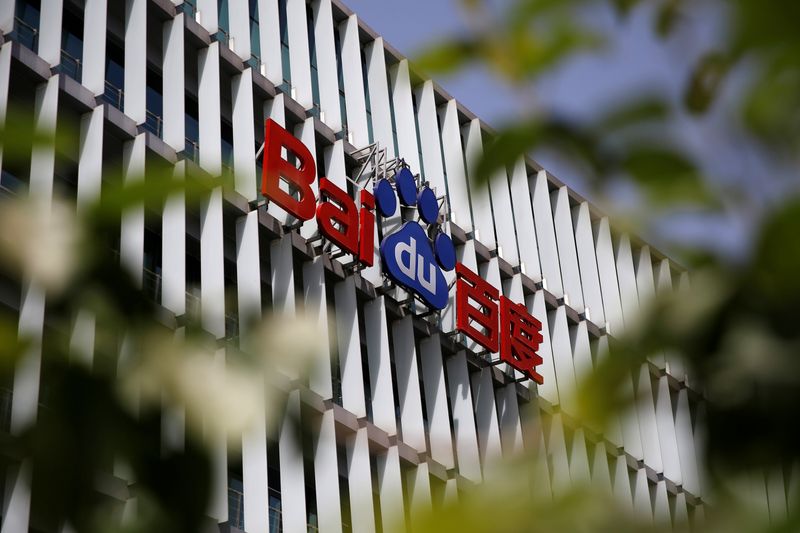By Kane Wu and Julie Zhu
HONG KONG (Reuters) - Private equity investors are seeking Chinese companies to take private in the hope they can snap up bargains amid the coronavirus-related sell-off, but the banks that help find such deals are proving less keen to finance them.
Interest in Chinese take-private deals is also rising along with tension between China and the United States, as several companies considering whether to keep a New York listing or move instead to Shanghai, Shenzhen or Hong Kong.
In April, private equity firm Ocean Link offered to buy Nasdaq-listed online classifieds marketplace 58.Com Inc (N:WUBA) for $8.3 billion in equity value, a premium of 17.8% to its undisturbed price in the largest Chinese take-private deal so far this year.
Bigger deals may also be in the offing. Internet giant Baidu (O:BIDU), with a market cap of $39.4 billion, is considering delisting from Nasdaq and moving to an exchange closer to home to boost its valuation, Reuters reported in May.
Baidu shares have fallen 9.5% this year while the Nasdaq Golden Dragon China Index (HXC), which tracks U.S.-listed Chinese firms, has gained 12%.
"The best time to cut take-private deals would be after a big crisis," said David Liu, founding partner of Asia-based private equity firm DCP Capital.
"It's easier to conduct privately negotiated transactions with listed companies at more attractive valuations in this environment."
'FAR FROM STRAIGHTFORWARD'
Funding however is the most challenging issue for any take-private deal.
"The banks are being extra careful these days," said Liu, adding that the caution was prompted by the risks posed to loan books amid the global economic downturn.
Samson Lo, head of Asia M&A at UBS, said financing was "far from straightforward" in the current environment.
"Banks tend to lend to repeat customers with visible long-term revenue streams, from financing a particular (deal), through future refinancing, to ultimate exits," he added.
Lenders are also valuing companies below what bidders want to offer, with some going as much as 20% to 30% below the acquisition price because of a more cautious outlook, said Effie Vasilopoulos, a partner with law firm Sidley Austin.
"How do you catch a falling knife? A common response has been to adopt very conservative valuations," she said. "We have not seen this dynamic in terms of financing and valuations fully play out yet. It is likely that the worst is yet to come in terms of market impact."
A Hong Kong-based loans banker with a Wall Street firm said the bank would not underwrite, or guarantee loan sizes, in case it proved unable to fully syndicate them to other banks.
Buyers would have to put in more equity and tap alternative sources of debt, said the banker, which could raise the cost of a deal - and lower the expected returns.
Chinese banks may offer a glimmer of hope, however. With big balance sheets and strong domestic relationships, they are more willing to lend to home clients.
58.com's consortium of buyers, which includes private equity firms Warburg Pincus (WP.UL) and General Atlantic, is in talks with Chinese banks for about $3 billion in financing, said three people with direct knowledge of the matter, adding that global banks find the figure challenging.
Warburg Pincus and General Atlantic declined to comment. 58.com and Ocean Link did not respond to requests for comments.
Some shareholders of Hong Kong- and U.S.-listed companies seeking outside funds to help them go private, have also turned to local governments in China, said another person with direct knowledge of the moves.

The people sought anonymity because of confidentiality constraints.